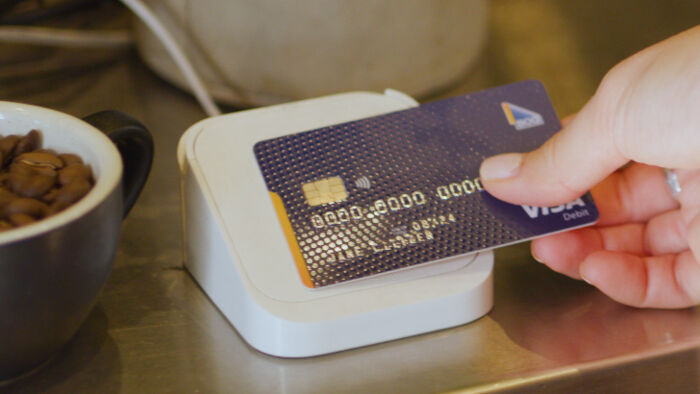Bank of Queensland launches recycled plastic debit cards in Aussie first
Bank of Queensland launches a new debit card made from recycled plastic, and multiple superannuation accounts are in decline.
Here are five things you might've missed this week.
Investing long-term for big returns
According to Vanguard's 20th annual index chart, an initial $10,000 investment in the broad Australian market in 1991 would have grown to $160,498 in 2021, yielding on average 9.7%.
"One of the biggest investment lessons learned from the pandemic is that markets are truly unpredictable, and letting short-term market conditions drive investment decisions is highly risky because it means investors have to get two timing decisions correct: when to exit the market and when to re-enter." says Balaji Gopal, Vanguard's Head of Personal Investor.
Investors can expect to see one major attention-grabbing market downturn event every two years, says Gopal.
"But in fact, investment returns are largely determined by asset allocation and an investor's resolve to stick to it, rather than by the timing of a trade. The vast majority of investors who cashed out last year would have fared better on the whole if they had left their portfolios untouched."
|
$10,000 invested in 1991 |
Accumulated investment value at 30 June 2021 |
% returns per annum |
| Australian shares |
$160,498 |
9.7% |
| International shares |
$107,939 |
8.3% |
| U.S. shares |
$217,642 |
10.8% |
| Australian bonds |
$75,807 |
7.0% |
| Listed property |
$118,013 |
8.6% |
| Cash |
$38,938 |
4.6% |
BOQ issues recycled debit cards
Bank of Queensland (BOQ) has become the first Aussie bank to issue debit cards made from recycled materials.
BOQ has collaborated with Melbourne-based manufacturer, Placard, to roll out the recycled cards.
The bank's group executive of retail banking, Martine Jager, says she is excited to be launching the recycled debit cards and leading the way to a more sustainable future for the banking sector in Australia.
"Plastic waste is one of the top three social and environmental issues that concern most Australians so I'm proud that we can do our bit to create a second use for industrial waste," she says.
"This initiative alone will prevent three and a half tonnes of waste from going to landfill, and is a great example of how we can help support our customers in their journey to living more sustainably."
Telcos in hot water over NBN speeds
The Australian Competition and Consumer Commission (ACCC) has brought three separate cases Telstra, Optus and TPG for allegedly misleading consumers over NBN speeds.
The regulator alleges the telcos advertised 50Mbps and 100Mbps plans, but failed to deliver those speeds.
"We want penalties," says ACCC chair Rod Sims.
"We just keep finding that the telecommunications companies are not taking their customers seriously - they keep treating them badly, they keep misleading them."
While acknowledging fault, Telstra group executive for consumer and small business noted that advertised NBN speeds are complicated.
"First and foremost, we are very sorry to have let these customers down," he said.
"Transparency around speeds is a complex topic and one which NBN Co has left entirely to the RSPs without providing the tools and information customers need so they know what to expect before they connect."
Citi agrees to sell consumer banking business to NAB
Citi has reached an agreement for National Australia Bank Limited (NAB) to acquire its consumer bank in Australia.
Citi's Australian consumer bank, including residential mortgages ($7.9 billion), deposits ($9 billion) and unsecured lending ($4.3 billion), will be transferred to NAB, together with approximately 800 Citi employees upon close of the transaction.
"We are focusing our resources on businesses where we have scale and competitive advantages in order to deliver growth and improved returns over time," says Citi CEO Jane Fraser.
"In addition to serving our wealth clients through four global hubs, we will continue to serve our institutional clients in Australia, as we have for nearly a century, and across the greater Asia Pacific region."
Multiple super accounts in decline
Research from the Association of Superannuation Funds of Australia (ASFA) shows that multiple super accounts are falling sharply.
If everyone had just one account, there would be 17-20 million superannuation accounts in the system.
In 2015, there were close to 30 million accounts. But as of June 2020, there were 24.4 million super accounts in the system.
Yet despite the decline in multiple accounts, the number of lost and inactive accounts remains largely unchanged at around five million.
"There is more work to be done to reduce the number of multiple accounts and to address the $3.6 billion in lost and unclaimed super which currently sits with the ATO," says ASFA's deputy CEO Glen McCrea.
Get stories like this in our newsletters.



